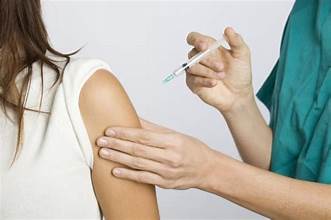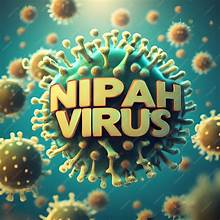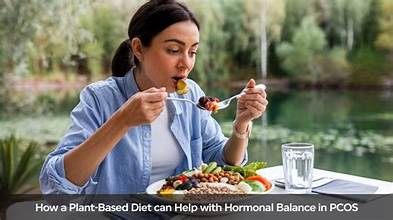What is the HPV vaccine?
The HPV (human papillomavirus) vaccine is a series of shots designed to protect against infection with HPV, one of the most common sexually transmitted infections (STIs) worldwide. HPV spreads through intimate skin-to-skin contact, including vaginal, anal, and oral sex.
There are about 40 types (or strains) of HPV that can infect the genital area, mouth, and throat. In fact, HPV is so widespread that around 80% of sexually active people will contract it at some point in their lives. For most individuals, a healthy immune system naturally clears the infection within a year or two.
However, some HPV infections don’t go away on their own. These persistent infections can cause health complications ranging from genital warts to life-threatening cancers. For instance, almost all cases of cervical cancer are linked to HPV, and the virus is also responsible for cancers of the genitals, anus, and throat.
This is why the HPV vaccine is so important. It offers safe, effective protection before exposure to the virus and can significantly reduce the risk of developing HPV-related health issues later in life.
What is the HPV vaccine for?
The main purpose of the HPV vaccine is prevention. It helps protect against HPV strains that are most likely to cause cancer or genital warts. Importantly, the vaccine does not treat existing infections. If someone has already been exposed to a particular HPV type, the vaccine won’t cure it but it can still protect against other strains they haven’t encountered yet.
HPV strains fall into two categories:
- High–risk strains: These are strongly linked to cancers, such as cervical, anal, penile, vaginal, vulvar, and oropharyngeal (throat) cancers.
- Low–risk strains: These don’t usually cause cancer but are the main cause of genital warts, which can be uncomfortable and recurrent.
By preventing HPV infection, the vaccine reduces the chances of developing:
- Cervical cancer
- Vaginal cancer
- Vulvar cancer
- Penile cancer
- Anal cancer
- Oropharyngeal (throat) cancer
- Genital warts
Types of HPV vaccines:
There are three HPV vaccines that have been developed, each protecting against different combinations of HPV strains:
- Gardasil 9: (currently used in the U.S.) – Protects against 9 types of HPV (7 high-risk cancer-causing types and 2 low-risk types that cause warts).
- Gardasil (quadrivalent vaccine): Protected against 4 types of HPV (2 high-risk, 2 low-risk). No longer distributed in the U.S. but still available in some countries.
- Cervix (bivalent vaccine): Targeted 2 high-risk HPV types linked to cervical cancer. Also no longer used in the U.S. but may still be available elsewhere.
Even if you received one of the earlier vaccines, you still have significant protection against certain high-risk strains. If eligible, you may benefit from additional vaccination with Gardasil 9, depending on your healthcare provider’s recommendation.
Who Should Get the HPV Vaccine?
The HPV vaccine is recommended for everyone, regardless of gender, before any potential exposure to the virus through sexual activity. Since the vaccine can only protect against HPV strains you haven’t yet encountered, getting vaccinated early offers the strongest protection.
The Centers for Disease Control and Prevention (CDC) provides age-based guidelines to help determine the best time for vaccination:
- Children ages 11–12:
The HPV vaccine is part of the routine childhood immunization schedule at 11 or 12 years old, although it can safely be given as early as age 9. Vaccinating at this age ensures protection long before there’s any chance of exposure through sexual contact. - Teens and adults up to age 26:
If someone wasn’t vaccinated as a child or didn’t complete the full series, they can still receive the HPV vaccine up through age 26. This age group can benefit significantly, especially if exposure to HPV strains has been limited. - Some adults ages 27–45:
In 2018, the U.S. Food and Drug Administration (FDA) extended the approved age range for vaccination up to 45 years. Research showed that the vaccine can still offer meaningful protection for some adults in this group. However, because most people have already been exposed to HPV by this age, the overall benefit is smaller.
It’s also important to note that insurance coverage often ends after age 26, and not all providers cover vaccination beyond that age. Still, middle-aged adults may benefit in specific situations for example, if they have had few sexual partners or are entering a new relationship.
Since each person’s circumstances are different, the decision to get vaccinated after age 26 is best made in consultation with a healthcare provider, who can consider your sexual history and overall risk.
HPV Vaccine Side Effects:
Common Side Effects of the HPV Vaccine:
- Pain, Redness, or Swelling at the Injection Site:
Mild discomfort, redness, or swelling where the shot is given is the most common side effect and usually clears within a few days. - Fatigue:
Feeling unusually tired is common but typically lasts only a day or two. - Fever:
A mild fever may occur as the body builds immunity. Over-the-counter medicine can help if needed. - Nausea:
Some people feel briefly nauseous after vaccination, but symptoms usually pass quickly.
Less Common Side Effects:
- Headache: Mild and manageable with standard pain relievers.
- Muscle or Joint Pain: Occasional soreness that resolves on its own.
- Dizziness or Fainting: More common in teens, often due to the injection process itself. Sitting for 15 minutes after the shot helps prevent fainting.
Serious Side Effects of the HPV Vaccine:
Severe Allergic Reactions:
Although extremely uncommon, some people may experience a serious allergic reaction after receiving the HPV vaccine. Warning signs include hives, swelling of the face or throat, difficulty breathing, or a rapid heartbeat. Anyone experiencing these symptoms should seek emergency medical care right away.
Guillain-Barré Syndrome (GBS):
Rare cases of Guillain-Barré Syndrome a neurological condition that can lead to muscle weakness or, in severe cases, paralysis have been reported following HPV vaccination. However, the likelihood of developing GBS after the vaccine is very low, and the protective benefits against HPV-related cancers far outweigh this small risk.
Safety and Ongoing Monitoring:
The HPV vaccine has been rigorously tested in large clinical trials and continues to be monitored worldwide. Extensive research confirms that it is both safe and highly effective in reducing HPV infections and related cancers.
To ensure continued safety, healthcare providers and individuals are encouraged to report any unusual or concerning reactions to the Vaccine Adverse Event Reporting System (VAERS). This monitoring system helps experts track side effects and maintain strong safety standards.
Precautions Before Receiving the HPV Vaccine:
While the HPV vaccine is safe and effective for most people, there are certain situations where you should take precautions or delay vaccination:
- During Pregnancy:
Because research on HPV vaccine use during pregnancy is limited, it’s generally advised to postpone vaccination until after delivery. However, if someone receives a dose before knowing they’re pregnant, studies show no link to pregnancy-related complications. - History of Allergic Reactions:
If you’ve previously had an allergic reaction to an HPV vaccine dose or to its components, inform your healthcare provider. People with severe allergies, such as to yeast or latex, may be at higher risk of an adverse response. - Current Illness:
If you’re experiencing a moderate or severe illness, your provider may recommend waiting until you’ve fully recovered before getting vaccinated. This helps ensure your body responds well to the shot.
Conclusion:
The HPV vaccine is one of the most effective tools in modern medicine for preventing cancers and diseases caused by the human papillomavirus. By offering protection against both high-risk and low-risk HPV strains, it significantly lowers the chances of developing cervical, anal, throat, and other related cancers, as well as genital warts.
While mild side effects like soreness, fatigue, or fever may occur, serious complications are extremely rare, and the overall safety profile of the vaccine has been proven through years of research and continuous monitoring. The benefits of vaccination far outweigh the risks.
Getting vaccinated at the recommended age ideally before sexual activity begins provides the strongest protection, but older individuals may also benefit depending on their circumstances. Always consult a healthcare provider to determine the best timing for you or your child.





